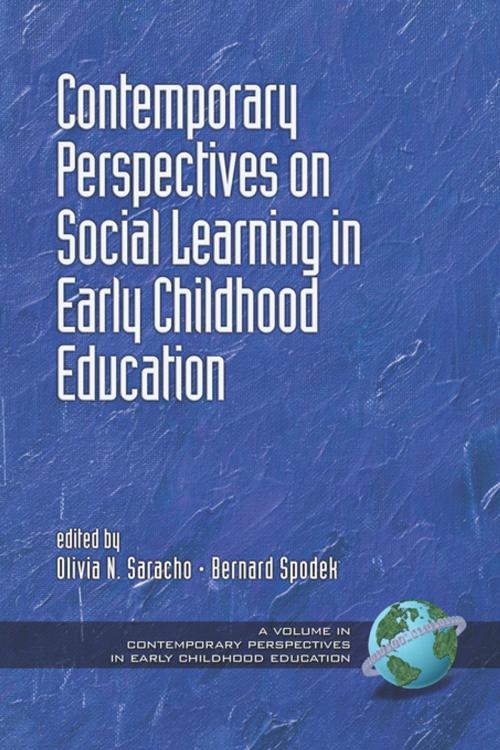Contemporary Perspectives on Social Learning in Early Childhood Education
Nonfiction, Reference & Language, Education & Teaching, Higher Education, Social & Cultural Studies, Social Science| Author: | ISBN: | 9781607527329 | |
| Publisher: | Information Age Publishing | Publication: | June 1, 2007 |
| Imprint: | Information Age Publishing | Language: | English |
| Author: | |
| ISBN: | 9781607527329 |
| Publisher: | Information Age Publishing |
| Publication: | June 1, 2007 |
| Imprint: | Information Age Publishing |
| Language: | English |
Social epistemology is a broad set of approaches to the study of knowledge and to gain information about the social dimensions. This intellectual movement of wide crossdisciplinary sources reconstructs the problems of epistemology when knowledge is considered to be intrinsically social. In the first chapter, "Social Epistemology and Social Learning," Olivia Saracho and Bernard Spodek discuss the social and historical contexts in which different forms of knowledge are formulated based on the perspective of social epistemology. They also discuss the emergence of social epistemology, which guides researchers to investigate social phenomena in laboratory and field settings. Social factors "external" to the appropriate business of science have a major impact in the social studies researchers’ historical case studies. Thus, social studies researchers may be considered social epistemologists, because (a) they focus on knowledge of social influences and (b) they infer epistemologically significant conclusions from their sociological or anthropological research. In addition, analyses indicate that studies of scientific paradigms are basically a struggle for political power rather than reflecting reliable epistemic merit. Social studies researchers focus on knowledge of social influences on knowledge, which is analogous to the knowledge of the social epistemologists. They also use their sociological or anthropological research to infer epistemologically significant conclusions.
Social epistemology is a broad set of approaches to the study of knowledge and to gain information about the social dimensions. This intellectual movement of wide crossdisciplinary sources reconstructs the problems of epistemology when knowledge is considered to be intrinsically social. In the first chapter, "Social Epistemology and Social Learning," Olivia Saracho and Bernard Spodek discuss the social and historical contexts in which different forms of knowledge are formulated based on the perspective of social epistemology. They also discuss the emergence of social epistemology, which guides researchers to investigate social phenomena in laboratory and field settings. Social factors "external" to the appropriate business of science have a major impact in the social studies researchers’ historical case studies. Thus, social studies researchers may be considered social epistemologists, because (a) they focus on knowledge of social influences and (b) they infer epistemologically significant conclusions from their sociological or anthropological research. In addition, analyses indicate that studies of scientific paradigms are basically a struggle for political power rather than reflecting reliable epistemic merit. Social studies researchers focus on knowledge of social influences on knowledge, which is analogous to the knowledge of the social epistemologists. They also use their sociological or anthropological research to infer epistemologically significant conclusions.















